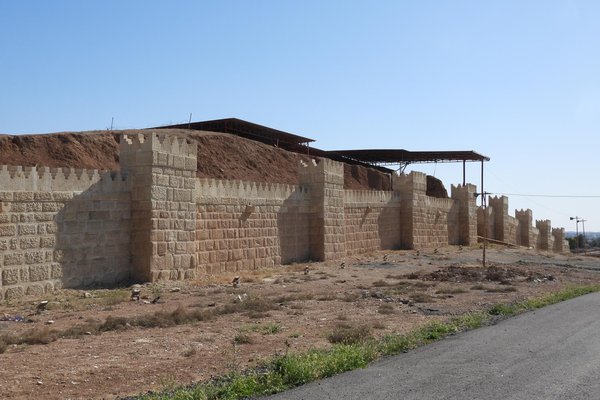Iraq
The Ancient City of Nineveh
Site Info
Official Information
- Full Name
- The Ancient City of Nineveh (ID: 1465)
- Country
- Iraq
- Status
-
On tentative list 2000
Site history
History of The Ancient City of Nineveh
- 2000: Added to Tentative List
- Added to tentative list
- Type
- Cultural
- Criteria
Links
- UNESCO
- whc.unesco.org
- Related
-
- britishmuseum.org — Historical city travel guide: Nineveh, 7th century BC
- livius.org — Livius details the history of Nineveh
All Links
UNESCO.org
- whc.unesco.org — whc.unesco.org
Related Resources
- britishmuseum.org — Historical city travel guide: Nineveh, 7th century BC
- livius.org — Livius details the history of Nineveh
News Article
- July 10, 2024 shafaq.com — Iraq restores Nineveh Wall to include it in World Heritage List
- April 19, 2016 independent.co.uk — Isis destroys gates to ancient city of Nineveh
- Jan. 29, 2015 english.shafaaq.com — ISIS resumes bombing historical effects and destroys the historic wall of Nineveh
Community Information
- Community Category
- Archaeological site: Near Eastern
Travel Information
Recent Connections
News
- shafaq.com 07/10/2024
- Iraq restores Nineveh Wall to incl…
- independent.co.uk 04/19/2016
- Isis destroys gates to ancient cit…
- english.shafaaq.com 01/29/2015
- ISIS resumes bombing historical ef…
Community Reviews
Show full reviews
Nineveh is yet another classic name on the list of Iraqi TWHS. Although it was present as a trade colony at the time of Ancient Mesopotamian civilizations early on, Nineveh’s heydays came with the Neo-Assyrians in the 9th century BC and spanned a relatively short period. It was their last capital and the end of the Assyrian Empire. In its time, it even was the largest city in the world. This Historical Travel Guide explains what you might have seen there when you were lucky to visit it in the 7th century BC.
The archaeological site of Nineveh can now be found in Mosul, across the river from the Old City. You will mostly notice the earthen walls surrounding it. The interior lies, as with so many things in Iraq, mostly unexcavated after the Assyrian sculptures were taken from it in the late 19th century and whisked off to museums around the world. The area is protected, but some poor people have set up camp there.
In addition to the walls, the most notable features are the gates. We visited two of them, very similar. You need a lot of imagination to see monumental entrances to a flourishing city in them. The gates also suffered from a lot of damage done by ISIS.
Keep reading 0 comments
